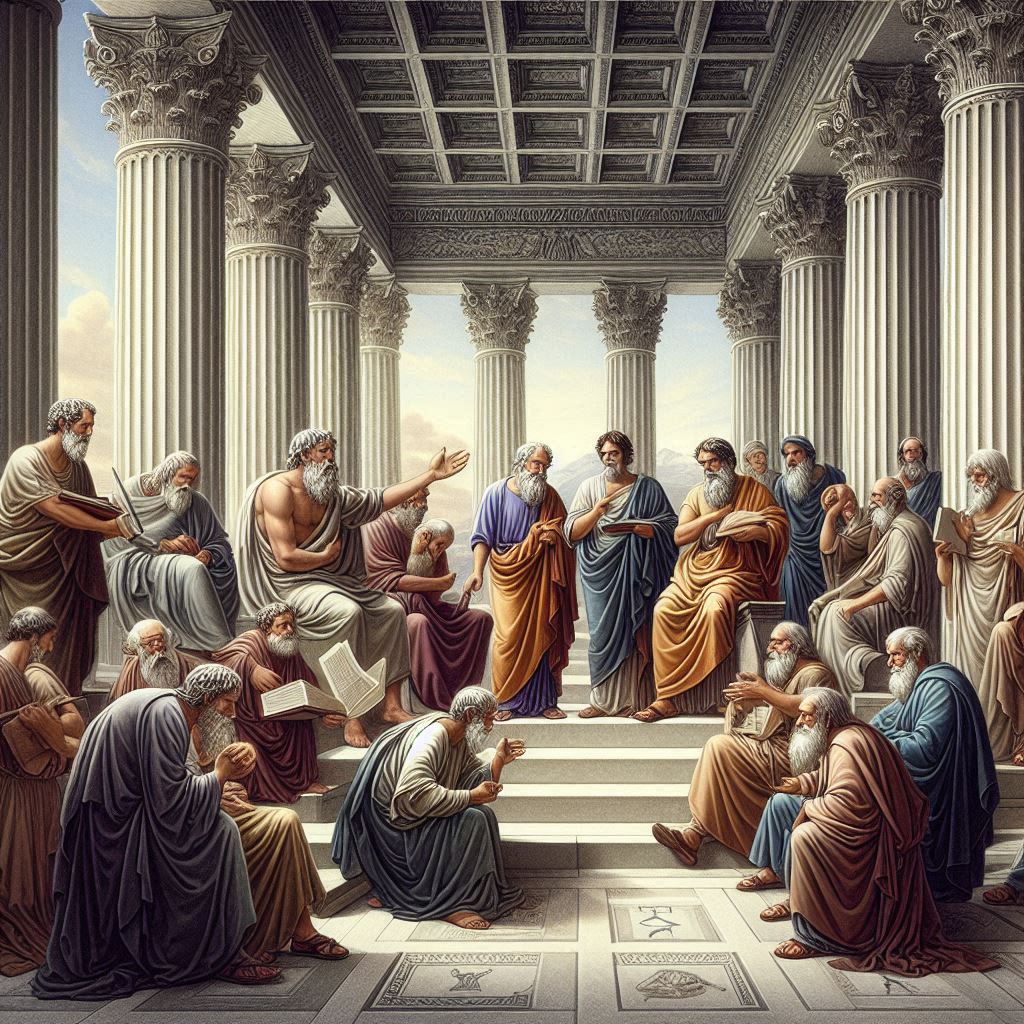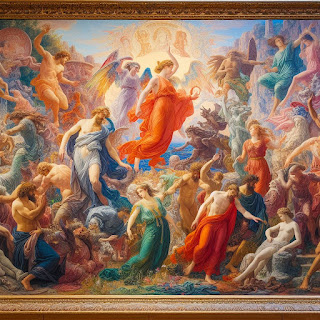I was just reading "Liturgy and Byzantinization in Jerusalem", you know to know more about the Patriarchate that I belong to (and my ancestors have for the past 2000 years), when the author used the Greek word "τάξις" (taksis) to describe liturgy and I was like wait this sounds like the Levantine/Arabic word طقس and after digging deeper, it turns out that طقس comes from Ancient Greek τάξις. Generated by AI: The scene captures the solemn and reverent atmosphere inside an ornately decorated church with priests performing the liturgy, while the dramatic Levantine landscape outside hints at an impending storm.






